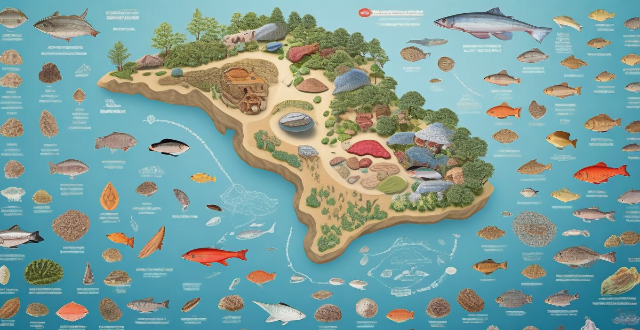This article explores how climate change affects biodiversity by altering ecosystems, species distribution, and genetic diversity. It discusses the impact of rising temperatures on habitat loss and altered precipitation patterns, ocean acidification on coral reefs and phytoplankton communities, and extreme weather events on fires and storms. The article also highlights the loss of genetic diversity due to reduced resilience and functional homogeneity in ecosystems, as well as inbreeding depression and genetic bottlenecks in species. Addressing climate change is essential for conserving biodiversity and maintaining healthy ecosystems.

How Does Climate Change Affect Biodiversity?
Climate change is one of the most significant threats to biodiversity, affecting ecosystems, species, and genetic diversity. It alters the natural balance of ecosystems, leading to shifts in species distribution, changes in migration patterns, and disruptions in ecological interactions. In this article, we will explore how climate change affects biodiversity in detail.
Temperature Rise
Impact on Ecosystems
- Habitat Loss: As temperatures rise, some habitats become unsuitable for certain species, leading to a reduction in their population or even extinction.
- Altered Precipitation Patterns: Changes in precipitation can cause droughts or floods, which can damage ecosystems and reduce biodiversity.
Impact on Species
- Range Shifts: Species may move to higher altitudes or latitudes to escape rising temperatures, potentially leading to competition with other species for resources.
- Extinction Risk: Some species may not be able to adapt quickly enough to changing conditions and face an increased risk of extinction.
Ocean Acidification
Impact on Ecosystems
- Coral Reef Degradation: Ocean acidification can weaken coral reefs, reducing their ability to support diverse marine life.
- Changes in Phytoplankton Communities: Acidification affects the growth and composition of phytoplankton communities, which are the base of the marine food web.
Impact on Species
- Shellfish and Other Calcifying Organisms: Acidic waters make it difficult for shellfish and other calcifying organisms to build their shells or skeletons, potentially affecting their survival and reproduction.
- Fisheries: Changes in ocean chemistry can impact fisheries by reducing the abundance and diversity of commercially important species.
Extreme Weather Events
Impact on Ecosystems
- Fires: Increased temperatures and droughts can lead to more frequent and severe wildfires, destroying habitats and reducing biodiversity.
- Storms and Floods: Intense storms and floods can cause physical damage to ecosystems, altering their structure and function.
Impact on Species
- Displacement: Extreme weather events can force species to relocate, disrupting established populations and ecological relationships.
- Mortality: High temperatures, storm surges, and floods can directly kill individuals, reducing population sizes and genetic diversity.
Loss of Genetic Diversity
Impact on Ecosystems
- Reduced Resilience: Ecosystems with lower genetic diversity are less resilient to environmental changes, making them more vulnerable to further degradation.
- Functional Homogeneity: Decreased genetic diversity can lead to functional homogeneity within ecosystems, reducing their overall stability and productivity.
Impact on Species
- Inbreeding Depression: Smaller populations resulting from habitat loss or extreme weather events may experience inbreeding depression, reducing their fitness and adaptability.
- Genetic Bottlenecks: Drastic reductions in population size can lead to genetic bottlenecks, where only a small portion of the original genetic variation is passed on to future generations.
In conclusion, climate change has far-reaching consequences for biodiversity at all levels of biological organization. It affects ecosystems by altering habitats, precipitation patterns, and temperature regimes; species by causing range shifts, competition, and extinction risks; and genetic diversity by reducing resilience, promoting inbreeding depression, and creating genetic bottlenecks. Addressing climate change is essential for conserving our planet's rich biodiversity and maintaining the health and functioning of ecosystems that support life on Earth.